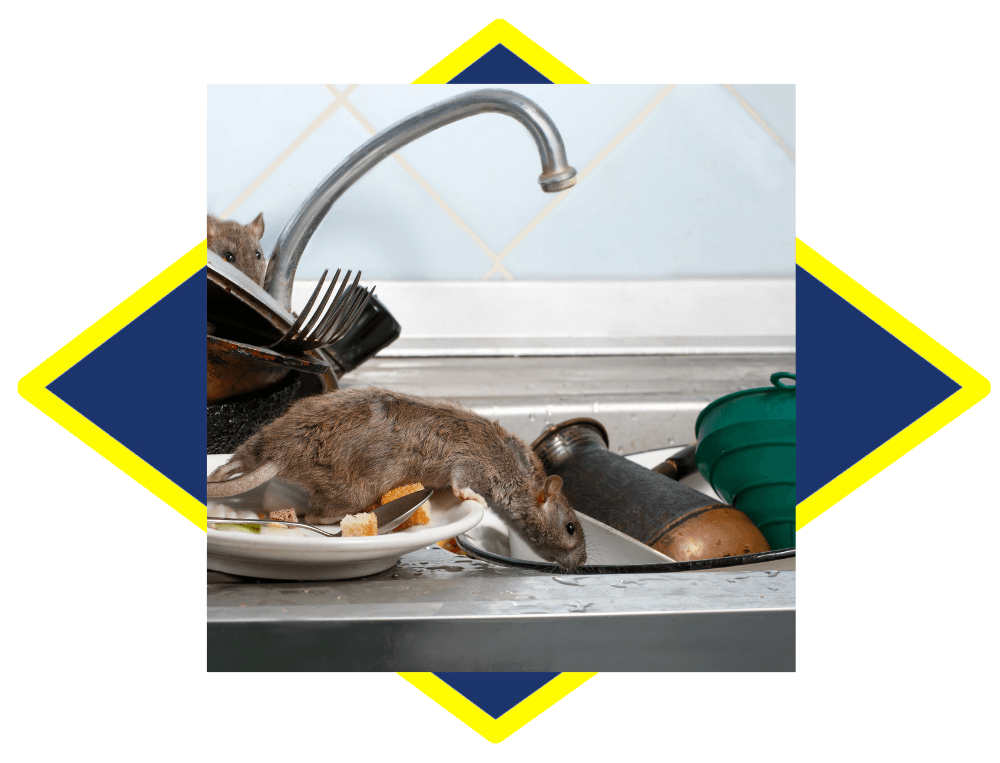Did you know that rats are social creatures? They take care of each other if injured or sick and tend to become lonely or depressed without a companion. While that might sound like a cute sentiment, it also means that the scratching you hear behind your walls at night might be from more than one set of paws. On the opposite end of the spectrum, restaurants' closure due to the pandemic has caused them to turn on each other.
It is not just "friends" these rats make like people do when moving into a new neighborhood; rats are very fertile creatures. They can start breeding as early as five weeks old. Females become fertile every three weeks and can breed until they are about two years old. What's more, rats give birth to litters from 6 to 20 babies. Of course, those babies will have babies after a few weeks - you can see how quickly a rodent problem can escalate in a short amount of time.
According to the CDC, rodents are a major factor in the spread of harmful disease-causing bacteria. They still play host to disease-carrying fleas and other microorganisms. They hitch a ride on the rodent and jump off when they come in close contact with another host, whether human, dog, or cat.
Even if you don't have pets and have not come in close contact with your new "house guest," serious diseases carried by rodents can still find you. According to a study at Columbia University, "E.coli and Salmonella are the leading cause of bacterial food poisoning in the U.S. with 1.4 million reported cases annually." These bacteria are commonly found in the urine and droppings of house mice and rats. Mice will urinate as they travel to mark their territory and pathways.
While rodent feces can be noticeable, trace amounts can land wherever they have traveled. Hantavirus pulmonary syndrome (HPS) is another serious disease transmitted by infected rodents through their feces or saliva. HPS is a respiratory disease and is usually spread by inhaling the virus through the dust that has come in contact with the infected feces.
The science is definitive - rodents are notorious for the spread of harmful bacteria, and the best way to reduce the spread is through rodent population control. With the world focusing on the COVID-19 pandemic, are we forgetting to protect ourselves from other harmful diseases? Handwashing, wearing masks, and maintaining social distance are measures we take when interacting with other people, especially in public places. However, the bacteria and viruses spread by rodents are usually contracted in the places we feel safest – our homes, at work, or a restaurant. We have learned to be hyper-diligent when it comes to hygiene. It's time we included pest control as part of our responsibility to ourselves and our communities.
That's exactly how we at Blast Pest Control feel. We take our time and go the extra mile to ensure the homes and businesses we service are pest-free. While we take pride in a job-well-done and making customers happy with our service, we also think of pest control as a service to the health and general wellbeing of the communities we serve. Call today for a free estimate.

